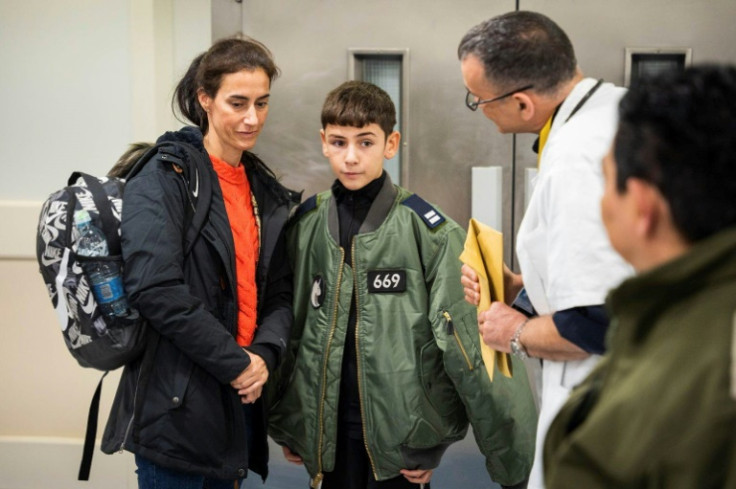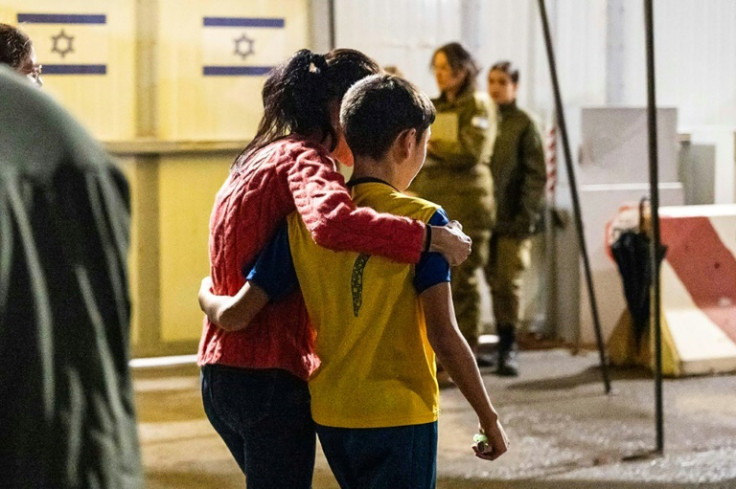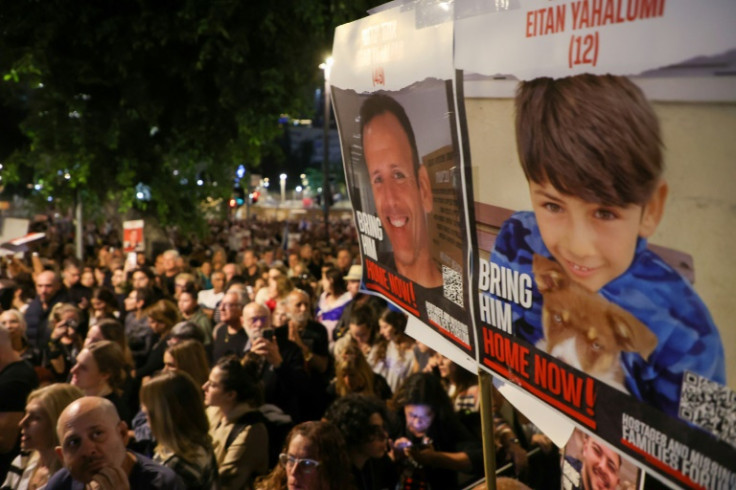
Four months after he was freed from captivity in Gaza, Eitan Yahalomi celebrated his bar mitzvah -- but his coming-of-age last week was far from a joyous occasion, his mother told AFP.
In her first interview with international media since her son's release last November, Bat-Sheva Yahalomi said the boy still had nightmares and had not been able to resume normal life.
"He's strong but he's not well," she said, adding that he was still reliving the experiences of October 7 last year.
Eitan, 12 years old at the time, was one of more than 250 people abducted by Palestinian militants that day -- snatched from his home in Nir Oz, a kibbutz in southern Israel.
His mother and two younger sisters were also taken but they escaped after they fell from their captor's motorbike.
Eitan's father Ohad, also taken on October 7, is still believed to be in captivity in Gaza.
Despite the precarious situation, the French-Israeli woman said she wanted to testify to the "horror" that her son experienced.
"First he was beaten, then they put him alone in a cell with bars and he was left alone for 16 days in the custody of armed men from Hamas," she said.
He was released 52 days later as part of a truce that saw more than 100 people, mostly women and children, set free.
Hamas official Bassem Naim told AFP mistreating people was "against the precepts" of Islam. He charged that stories of abuse from former hostages were part of an "Israeli propaganda campaign" to deflect attention from their own abuses.
Israel says about 130 captives remain in Gaza, including 34 presumed dead.
The October 7 attack resulted in about 1,160 deaths in Israel, mostly civilians, according to an AFP tally of Israeli official figures.
Israel's retaliatory campaign against Hamas has killed at least 32,552 people, most of them women and children, according to the latest toll issued Thursday by the health ministry in Hamas-run Gaza.
The United Nations has said northern Gaza is on the brink of famine and the territory's health system is collapsing.
Hamas official Bassem Naim told AFP mistreating people was "against the precepts" of Islam and argued that stories of abuse from former hostages were part of an "Israeli propaganda campaign" to deflect attention from their rights abuses.
Bat-Sheva Yahalomi said her son told her everything about his captivity when he was freed -- an account she said she still found disturbing.
"They forced him to watch films they said they had filmed on October 7 and when he cried, they threatened him with a gun," she said.
Under constant surveillance and in isolation, he knew nothing of the fate of his family and his captors gave him contradictory accounts, plunging him into "terrible uncertainty", she said.
An Israeli doctor who treated some freed hostages said in December that some youngsters were drugged by their captors and subjected to psychological abuse.
A woman who was detained with Eitan, Doron Asher-Katz, said after her release that they had been moved after 16 days to a hospital building, which the Israeli military later said was the Nasser Hospital in Khan Yunis.
There, he was locked in a small room with 10 other hostages including five children, Asher-Katz said.
His mother said he showered only twice in 52 days, did not sleep on a mattress once and during the first 16 days all he had to eat was "a pita and a cucumber a day".
Although Eitan once again has the material comforts of home, the absence of his father means the family are still in limbo.
"The children ask me about their father, but I don't have any answers," said Bat-Sheva Yahalomi, who is still hoping for her husband's return.
She last saw him on October 7, injured, in front of their home.








